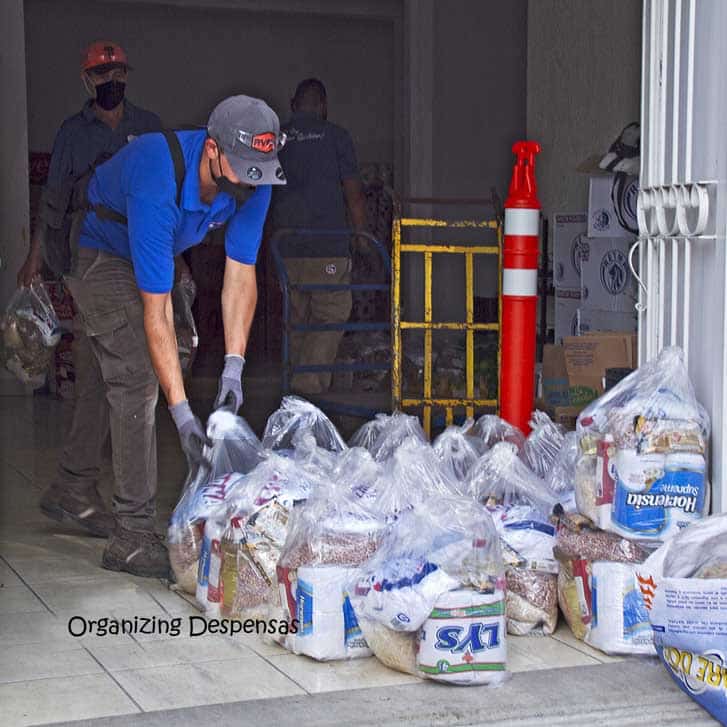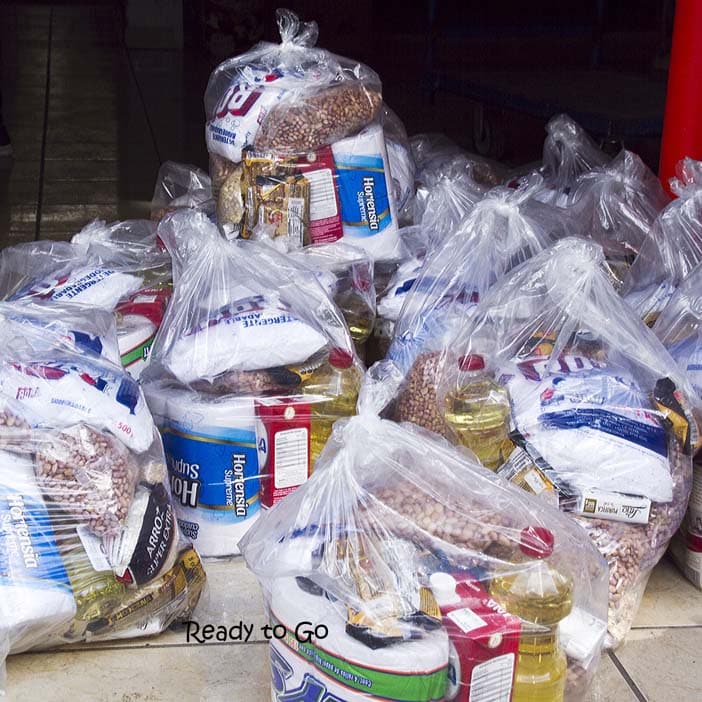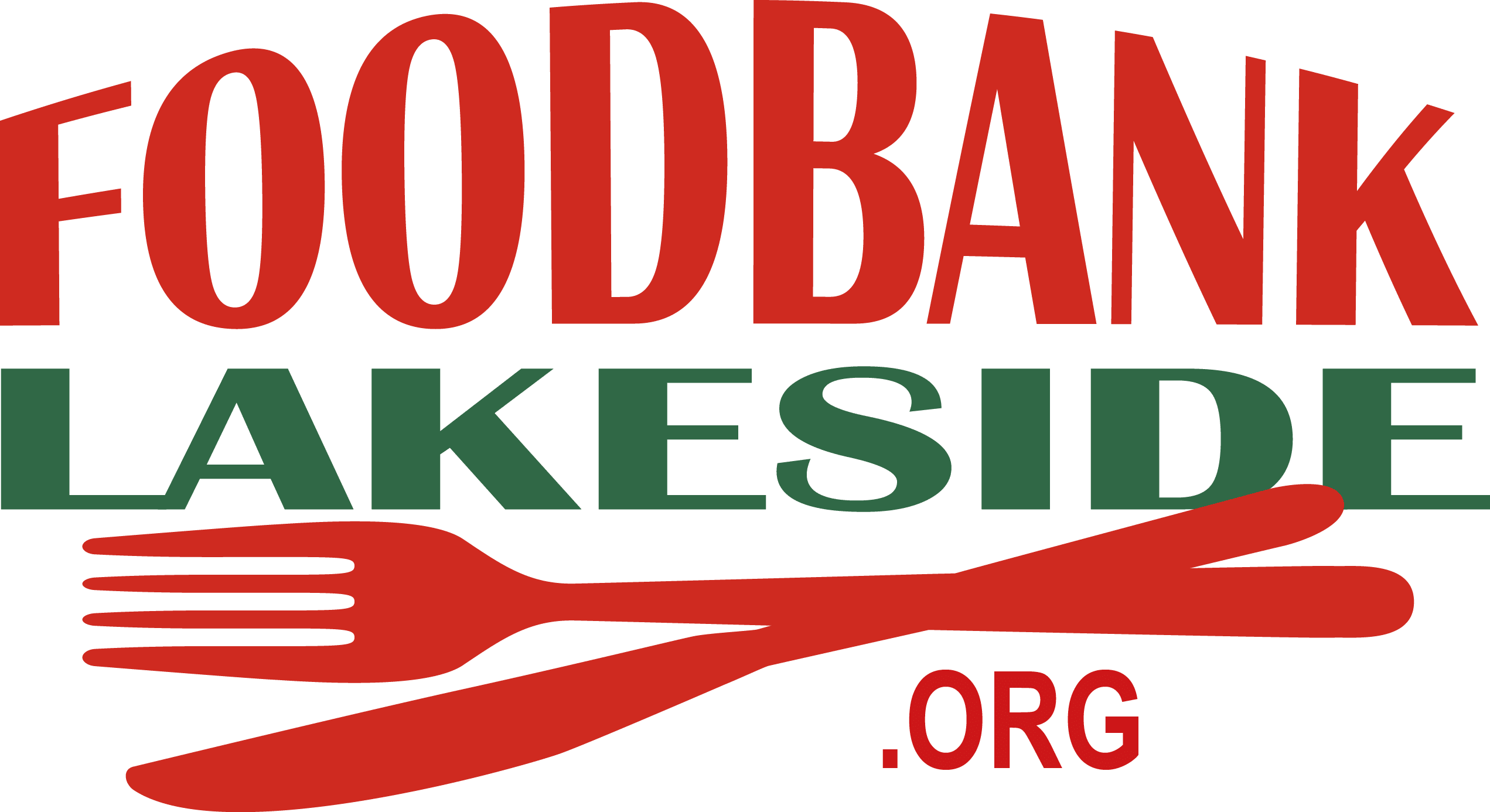
WHO ARE OUR DONORS
HIS TALENTS BENEFIT FOODBANK LAKESIDE
David Bryen always loved nature. Growing up in Montana, Wyoming, and Oregon, he had plenty of opportunities to explore the forests and the lakes and the rivers, picking up stones and hunks of wood. Especially wood. That early life has served him well over the years.
His father was a minister, and while David was not called to follow in traditional, organized religion, his father’s spiritual love of nature rubbed off on the young boy. David earned his degree in Psychotherapy with a Masters in Pastoral Counseling and became a marriage counselor. But it was the magic of wood that has continued to fascinate him.

“In my arrogance, I said to myself, ‘I’m smarter than anybody I know. If a builder can build a house, why can’t I? I can build my own cabin’,” he said. “So, I just started to build.”
He grew his ability to work with wood, using his lathe to make small items like letter openers, calligraphic pens, inlaid boxes, didgeridoos (musical instruments of the Australian Aborigines generally made from eucalyptus wood), then a desk. Then it was a cabin. He always wanted to live in a cabin by the water. He found property in the Oregon woods bordering a lake, perfect for his go-for-it nature.
That was 1982. It was learn as you go, fitting the pieces together. The lakeside “cabin” eventually ended up as a 1,300 square foot house where he and his wife, Gloria, spent their weekends with their two children. He was adding on and tinkering with the final trim up until the day they sold it in 2010 when they moved to another lake — Lake Chapala.
“I was getting close to retirement, so we started looking around,” he explained. “I was writing an autobiography and one of the reasons we settled on Ajijic is there is a strong writers ’group here, as well as a lake and great motorcycling opportunities.”
Motorcycles have been another enduring love since David was a teenager. In order to learn to ride safely, David studied and then became a Motorcycle Safety Instructor for the state of Oregon.
“Riding a motorcycle safely demands rethinking and learning techniques like counter steering,” he explained. “I realized the journey of life was like riding a motorcycle — responding to hazards along the way in a positive manner. I found that the psyche is similar to motorcycle riding: how to shift paradigms, how to trust instincts. On a spiritual path or on a motorcycle, when you see a wall in front of you, your instinct is to slam on the brakes rather than look where you want to go, lean into the turn and power through.”
It was his adventure to Copper Canyon in 2010 and the Ajijic writing group of talented people that helped him transform his book from an autobiography into a guide to spiritual life lessons – a fascinating book entitled Riding off the Edge of the Map.
“Actually, it was a horrible ride,” he admitted, “because we followed the map and we trusted that hand drawn map rather than trusting our instincts. I broke ribs in a crash, lost my bike to the cartel and only of one of the three of us made it through the entire canyon.
“By putting motorcycle riding as a metaphor for a spiritual journey in the book was easier to make my point,” he continued. “How misapplied maps govern our lives. What were the forces that shaped incomprehensible behaviors in some people?”
What seems an extreme opposite from the adrenaline rush of speed and power of a motorcycle is the serenity of working with one’s hands – in David’s case, with wood. But they both take awareness.

He has his woodworking shop where he spends countless hours crafting everything from bookmarks to furniture for their house. He has a stash of exotic woods not only from Mexico but from Africa, Brazil, all over the world. In fact, when he came to Lake Chapala he had a suitcase full of wood, and every time he makes a trip to Oregon he does the same thing.
Can you fall in love with an inanimate object? It was a piece of Cocobolo wood, one of the most beautiful hardwoods in the world. It is in the Rosewood family, native to Central America from Panama to Mexico, particularly in the uplands along the Pacific coast.

“When I cut one open it was so stunning, I fell in love,” he admitted. “It fit with my dreams. I go crazy looking at the piece of wood, the beauty of it, the smell of it, the feel of it. It’s been a sustained love affair.”

From April until this past November, every day he was churning out hundreds of beautiful, laminated coasters with ¼ inch strips of different exotic hardwoods. Each coaster takes about four hours to complete. He was like a man possessed, spending long hours cutting, placing, and gluing the wood together. Unfortunately, his coaster business came to an abrupt halt when he developed an allergy to the Superglue he was using.
“I didn’t want to stop, I was having so much fun,” he smiled. “I didn’t need the money from the sales, nor did I want to make money from my art. In talking with a friend who volunteers at Foodbank Lakeside, I decided to donate the proceeds to them.” Why did he choose FBL? “FoodBank Lakeside had sense of soul to it. I like what they are doing,” he said, touching his heart.
David has not stopped working with wood, however. Currently he is modifying his portable fire pit. He continues to give talks and he continues to donate to charity. He has an upcoming talk at Open Circle on “Inside Wood,” currently scheduled for February 28.
